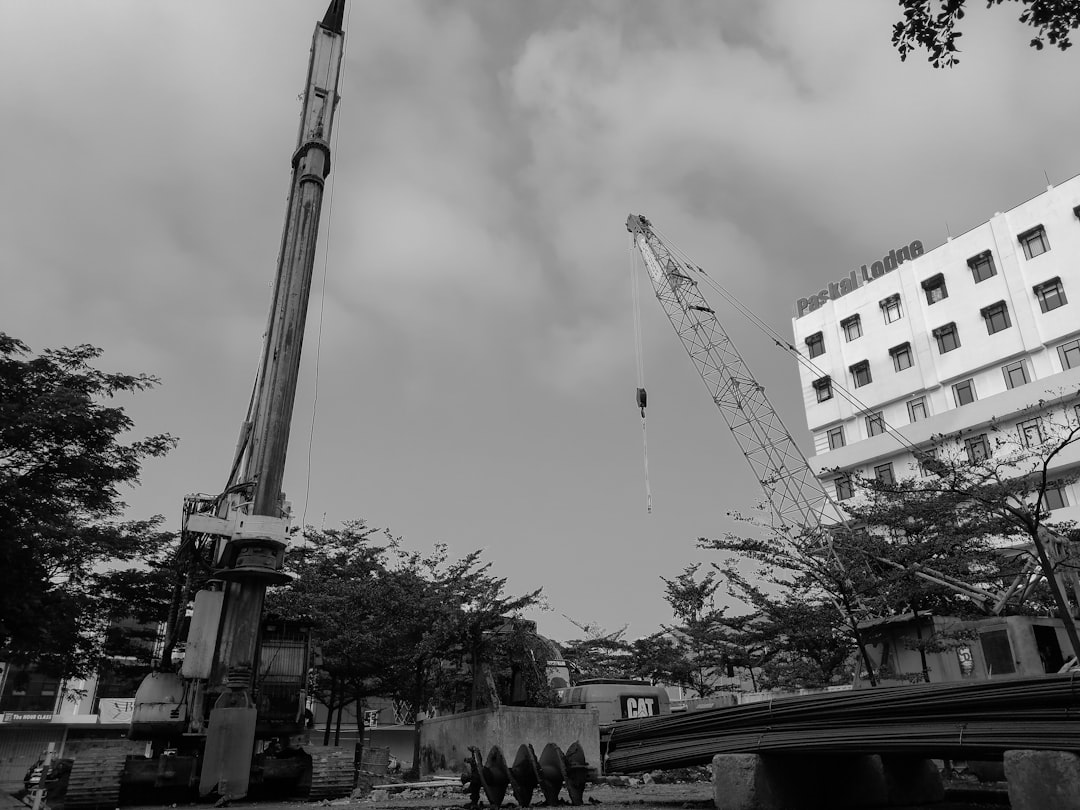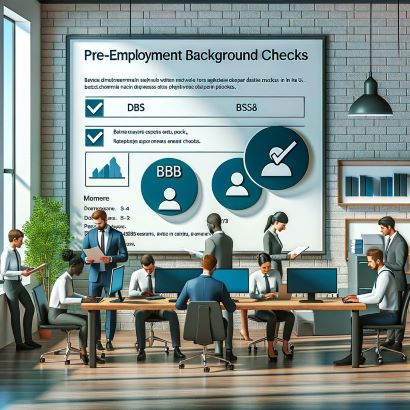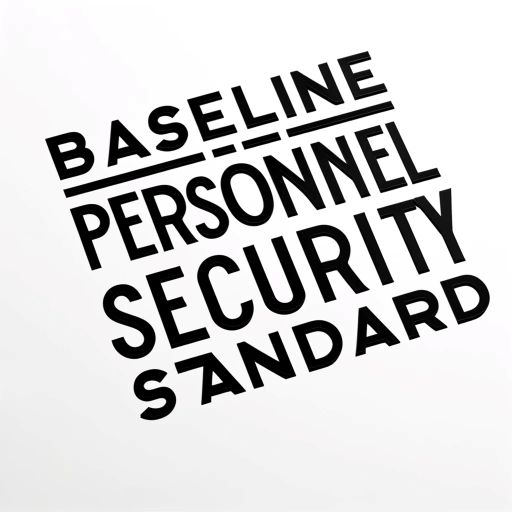

In some cases, BPSS checks can encounter delays if discrepancies or issues need to be resolved, such as gaps in employment or discrepancies in personal information. BPSS checks are typically required for individuals working in, or on behalf of, the UK government. NHS staff, particularly those in positions with access to personal and sensitive patient data, require BPSS clearance to protect patient confidentiality and ensure the integrity of medical services. right to work checks as well as a basic dbs checks are part of bpss clearance in the uk.
Follow these steps to guarantee a thorough BPSS clearance:1. **Verify Right to Work:** Check the individual's legal right to work status in the country.2. **Conduct Identity Check:** Authenticate the person's identity through official documents like passports or driver's licenses.3. **Check Criminal Records:** Perform a background check to identify any criminal history that could pose a risk.4. **Confirm Employment History:** Validate the accuracy of the individual's employment history to ensure transparency and honesty. Ensuring the right to work involves validating an individual's legal status to be employed in the country.
Coordinating with overseas authorities for document verification and background checks adds another layer of difficulty, extending the time required for completion. When undergoing a BPSS check, you're subjected to a thorough screening process to confirm your trustworthiness and eligibility for accessing sensitive information.
There are also specific rules regarding non-discrimination that must be followed during the BPSS process. These components collectively contribute to a thorough assessment of an individual's background, aiding organizations in making informed decisions regarding their suitability for roles requiring access to sensitive information.
Unlike BPSS checks, DBS checks are required for positions involving contact with vulnerable groups, such as in teaching, healthcare, and social services. Verifying identity and right to work involves checks against databases and sometimes contacting issuing authorities, especially if there are concerns over the authenticity of the documents. BPSS checks are generally quicker to complete, often within a few weeks, reflecting their role as a baseline security measure. Government projects
Remember, attention to detail in gathering these documents could be the difference-maker in your clearance journey. Providing evidence of at least three years of employment history is an important requirement for BPSS clearance.
For positions within the UK government and its contractors, BPSS clearance is not just a formal requirement but a critical security measure. Ensuring that individuals have BPSS clearance helps maintain national security and reduces the risk of insider threats.
Conversely, BS7858:2019 can require a more thorough examination, potentially including spent convictions and other details depending on the risk assessment of the specific job role, reflecting its focus on positions where security is critically important. By ensuring that employees do not have harmful criminal backgrounds, organizations can maintain a safe and secure working environment.

Follow our guide to apply for BPSS clearance successfully.
Posted by Jasmine Roberts on 2024-10-08

Keep your BPSS clearance active with proper renewals.
Posted by Jasmine Roberts on 2024-06-24
Posted by Jasmine Roberts on 2024-06-14

Learn how employers can ensure BPSS compliance.
Posted by Jasmine Roberts on 2024-06-08

Avoid these common BPSS clearance application mistakes.
Posted by Jasmine Roberts on 2024-05-29

Discover what employers verify during BPSS checks.
Posted by Jasmine Roberts on 2024-05-10

Learn the essential requirements for BPSS clearance approval.
Posted by Jasmine Roberts on 2024-04-27

Learn the differences between BPSS and CTC clearance.
Posted by Jasmine Roberts on 2024-02-10
BPSS clearance is essential for individuals with access to government assets and sensitive information, as it confirms the honesty and integrity required for specific roles. Organizations must understand the differences to ensure they are implementing the correct type of check for their specific needs. These records play an important role in the BPSS clearance process as they're thoroughly evaluated during background checks.
BPSS clearance is essential for those working in roles that require high levels of trust and integrity, especially within the UK government. It helps prevent the employment of individuals who might have restrictions that could impact their suitability for specific duties.

Checking criminal records focuses on unspent convictions, evaluating an individual's trustworthiness. This is more comprehensive compared to the simpler criminal record check involved in BPSS. Proper identification is the cornerstone of the BPSS clearance process and helps maintain the integrity of the workforce within protected sectors.
Failure to verify this can lead to severe penalties, fines, and reputational damage for the organization if they are found to be employing someone illegally. One of the foremost rules is compliance with the Data Protection Act 2018, which governs the processing of personal data.
Navigating the BPSS process can pose challenges, particularly when verifying identity and employment history manually. Individuals needing access to UK OFFICIAL assets and occasional access to UK SECRET assets must undergo BPSS screening to uphold trustworthiness, honesty, and integrity in their roles.


The primary purpose of BPSS checks is to establish a reliable baseline of security clearance for individuals to ensure they meet specific standards of trustworthiness, integrity, and reliability. Alongside these, national identity cards or residence permits may also be accepted to establish your identity accurately. In conclusion, BPSS clearance is an essential component of the security framework within many organizations, particularly those involved with the UK government or national security. Confidentiality agreements
BPSS checks are designed to serve as a preliminary screening for individuals seeking to work in sensitive or secure environments, particularly within the government or its contractors. The verification of essential documents plays a pivotal role in the recruitment process requirements for obtaining BPSS clearance.
In these sectors, verifying the eligibility and trustworthiness of individuals handling government-related tasks is essential. Additionally, government contracts frequently require BPSS checks as a preventive measure to enhance security measures.
Hence, BPSS checks are an essential aspect of security practices for entities associated with the UK government. BPSS does not have a formal ongoing monitoring or renewal policy; it is primarily conducted at the time of hiring.

Military personnel, from soldiers to strategists, also require BPSS clearance due to their access to classified military operations and strategic information. It ensures that individuals handling classified information or involved in security-sensitive activities are appropriately vetted and continuously monitored throughout their employment. These checks serve as a first line of defense, ensuring that individuals employed in positions of trust are properly vetted to safeguard national security and the integrity of public services.
The duration of a Baseline Personnel Security Standard (BPSS) check can vary significantly based on several factors, including the complexity of the individual's background, the efficiency of the vetting process, and the responsiveness of various data sources. Guaranteeing the accuracy of right to work status and conducting international criminal record checks can also be challenging aspects of the BPSS process.
This facilitates seamless collaboration among HR, security departments, and external vetting agencies, making the process more efficient and less susceptible to delays caused by geographic and temporal barriers. What Is in a BPSS Check?
To verify your employment history for BPSS clearance, make sure you have documentation such as PAYE records, HMRC tax records, payslips, P45, and P60. Several factors can influence the duration of a BPSS check. Immigration checks
In contrast, DBS checks might need to be renewed more frequently, especially for positions involving regular contact with vulnerable groups. For compliance, it is vital that employers keep records of the documents checked as part of the right to work process. To grasp the significance of BPSS screening, consider its role in verifying essential personal and professional details for individuals in sensitive positions with access to government assets.
Ultimately, BPSS clearance plays a critical role in maintaining a secure work environment, reducing risks, and building trust in recruitment processes and decision-making. The initial stages of a BPSS check involve gathering personal information from the candidate, including identity documents, employment history, and nationality status.
Verifying your time spent abroad enables a thorough background check to determine your integrity and identify any security risks that may arise from those stays. Security clearance levels The nationality and immigration status check confirms the candidate's eligibility to work in the UK.
Complex employment histories or discrepancies in provided information may further slow down clearance procedures. By adhering to these rules, employers not only protect the integrity of their operations but also uphold the rights and dignity of their employees, ensuring a secure and respectful work environment.

Delays in BPSS Clearance can occur due to incomplete applications, missing documents, or extended reference checks. Applicants should ensure all information is accurate and complete.
Employers rely on BPSS Clearance results to make informed hiring decisions for sensitive roles. It helps ensure candidates meet security standards required for the job.
Once a BPSS application is submitted, the employer reviews the documents, verifies references, and conducts identity and background checks before granting clearance.
Government roles require BPSS Clearance to ensure that employees handling sensitive information are trustworthy, legally authorized to work, and free of disqualifying criminal histories.
Employers conducting BPSS screening must comply with UK data protection laws. Personal data is stored securely and used only for vetting purposes.
BPSS Clearance involves verifying an individual’s identity, employment history, right to work, and criminal record. This ensures that only eligible candidates are employed in sensitive positions.
The cost of BPSS Clearance is typically covered by the employer. However, in some cases, applicants may need to pay for certain document-related fees, such as background check certificates.
While a criminal record check focuses solely on an individual’s criminal history, BPSS Clearance includes identity verification, employment history review, and right-to-work checks in addition to criminal records.